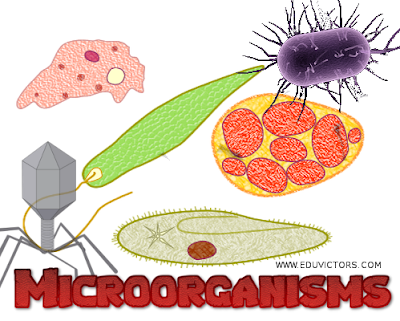Microorganisms – Friends or Foes (Worksheet)

1. Study of Microorganisms : __________________
2. The size of bacterium is 3.5 microns = ___________ mm = ___________ m
3. Microbes are divided into four categories:
i. _____________ ii. _____________
iii. _____________ iv. _____________
4. Viruses live on __________ line of living and non-living. They do not own _______ apparatus. They enter the body of living cell and start ___________.
5. The living cell inside which the virus grows and multiplies is known as ________.
6. Study of viruses is called ___________.
7. Father of Microbiology ____________.
8. The study of bacteria is called ____________.
9. A virus that infects and replicates in a bacterium is called ____________.
10. The curd contains __________ bacteria which helps to change the milk into curd.
11. Four types of bacteria are recognised based on shape:
i. S______ shaped
ii. R____ shaped
iii. S_______ shaped
iv. C____ shaped
12. The conversion of sugar solution into alcohol and liberation of carbon dioxide is called _________.
13. Study of fungi is called _________.
14. Fungi are_______ of photosynthesis. (capable/ incapable)
15. Antimicrobial agents which are useful medicines or drugs and are called __________.
Examples are: ________, ___________and __________
16. A_____ F______ of Britain in 1929 discovered the ‘Wonder Drug’ called _________.
17. Rhizobium are Azatobactor are ________-fixing bacteria. They live ________ nodules of ________ plants.
18. _________ is the best source of vitamin B complex and vitamin Riboflavin. It is a ______.
19. Edible fungi are: ___________.
20. Citrus Canker, a plant disease, is caused by ___________.
21. Blast disease of rice, a plant disease, is caused by ___________.
22. Tobacco Mosaic disease, a plant disease, is caused by ___________.
23. Virus causing diseases are: _________________________________.
24. Bacteria causing diseases are: ______________________________
25. Fungal diseases are: ___________________________________
26. Diseases caused by protozoa are: ___________________________
27. Milk is heated to 72°C for 30 minutes and then suddenly cooled to 12°C. Microbes are killed without causing damage to the taste and quality of milk. Name this process: ____________
Comments
Post a Comment